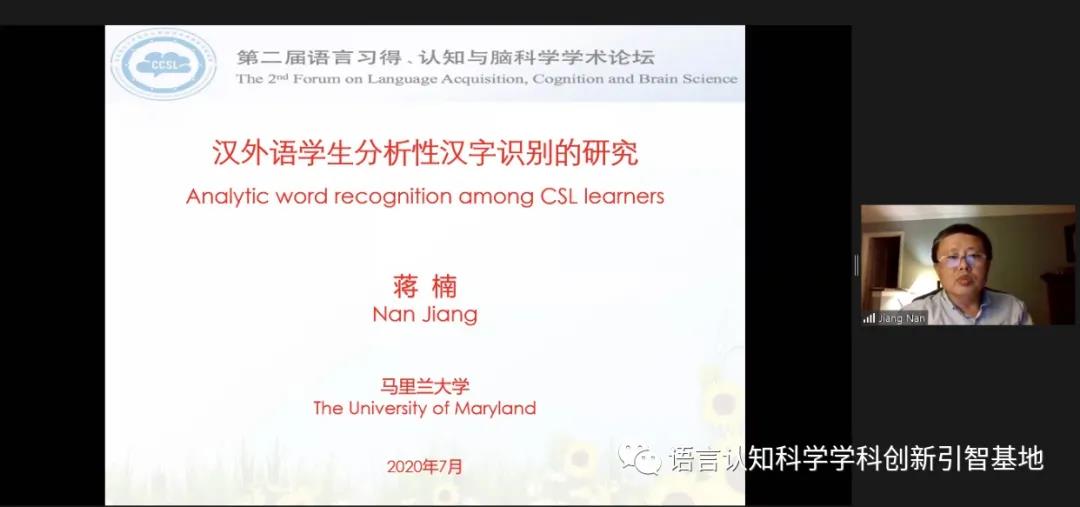On the morning of July 27th, Professor Nan Jiang from the University of Maryland was invited to the 2nd Language Acquisition, Cognitive and Brain Science Academic Forum, he brought us a seminar entitled "Research on Analytical Chinese Character Recognition for Chinese and Foreign Language Students" Academic lecture. This lecture is the third lecture of the forum. It was initiated by Professor Wang Jianqin, Director of Center for the Cognitive Science of Language, Beijing Language and Culture University, and hosted by Dr. Wei Yanjun. The lectures broadcasted via zoom and bilibili, which attracted hundreds of domestic and foreign audiences.
In this lecture, Professor Jiang first introduced the number of strokes effect in Chinese vocabulary recognition and the word length effect in pinyin word recognition, and the two corresponded. Professor Jiang pointed out that the word length effect may be closely related to the processing strategy of vocabulary recognition. Vocabulary recognition is divided into linear word recognition and parallel word recognition. The word length effect reflects the linear processing in word recognition. Some scholars believe that the development of word recognition and reading ability is a transformation process from linear/analytical processing to parallel/holistic processing. Therefore, Professor Jiang introduced the question that this lecture focused on: Compared with native speakers, do Chinese and foreign language students use analytical vocabulary recognition strategies more? Professor Jiang answered this question through two empirical studies, one of which used two-character compound words as experimental materials and the other used Chinese characters as experimental materials. The results of these two experiments both found that Chinese foreign language users showed a strong stroke number effect, indicating that Chinese foreign language users rely more on analytical literacy strategies. At the end of the lecture, Professor Jiang proposed the theoretical significance and teaching significance of the subject research.
Professor Jiang’s lectures are in-depth but understandable, giving the audience meaningful inspiration. In the discussion part, the audience actively asked questions, and Mr. Jiang and the teachers and students present had a full discussion. Teacher Nan Jiang’s lecture provided us with a lot of reference and enlightenment for studying the integrity and analytical processing of language units at different levels, such as Chinese characters, compound words, and chunks. The teachers and students at the meeting said they benefited a lot.
